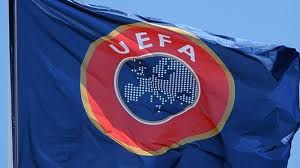By Andrew Warshaw
June 6 – After months of thorny negotiations, Europe’s major leagues say they have ended their long-running dispute with UEFA after being promised a greater say in the decision-making process, not least when it comes to Champions League fixtures.
A Memorandum of Understanding between the EPFL and UEFA expired in March and EPFL chairman Lars-Christer Olsson, himself a former UEFA chief executive, said at the time that the two sides were still some way off forging a new accord.
As a result, the EPFL scheduled their first ever extraordinary general meeting in Geneva today and announced afterwards that a new co-operation deal was being finalised, with UEFA due to ratify it in the autumn.
Under the deal, said Olsson, the EPFL will have a voting voice on UEFA’s executive committee and other bodies, just as Europe’s major clubs do under the umbrella of the European Club Association. To accommodate this change, he said, the UEFA statutes would have to be changed when European football’s governing body holds its own extraordinary congress in September.
This new agreement will enter into force on the date of its signature by both parties, effectively ending the EPFL’s threat to schedule domestic league games on the same midweek nights as European club fixtures.
Olsson admitted that the 2018-21 cycle, which gives more Champions League group stage places to teams from the top four leagues and fewer for clubs from smaller leagues, was a virtual fait accompli but that thereafter his 32 members would have a greater say in UEFA decisions that affect them, not least distribution of income.
“Most of the decisions are already made for the 2018-21 cycle …but participating in the structures of UEFA means we can involve ourselves when matters come up,” Olsson told reporters.
“From the date the agreement is signed, the EPFL will have proper recognition by UEFA and full membership in the important decision-making bodies including the executive committee. We are convinced that keeping competitive balance is absolutely necessary to safeguard the game.”
Rumours have been rife in recent months that some Champions League games might in future take place on Saturday evenings but Olsson said this was not going to happen without his organisation’s approval.
“We have agreed on how the international calendar should be treated. If there is any change in the future – and there are no Saturday matches now apart from the final – it will have to be in agreement with the EPFL. The current calendar is the starting point.”
Olsson made it clear the EPFL’s relationship with UEFA president Aleksander Ceferin was far healthier than under his predecessor Michel Platini.
“It’s obvious he is looking for a bigger inclusion of stakeholders than in the past,” said Olsson. “We have a totally different climate now in the discussions.”
Contact the writer of this story at moc.l1713575002labto1713575002ofdlr1713575002owedi1713575002sni@w1713575002ahsra1713575002w.wer1713575002dna1713575002

